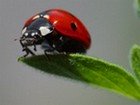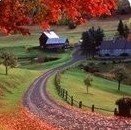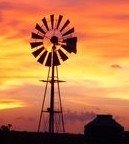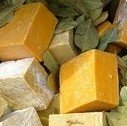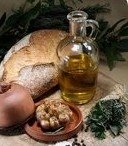Feeding and Weaning Lambs
by brent cobb
(townsend tennesee)
I have 2 bottle fed lambs that are now one month old they have begun picking at flowers and nibbling on grass.
My question is how and what do I feed them? They show no interest in grain. Is it too early?
Help!
East Tennessee
****************************************************
Brent,
Don't be in too much of a hurry to wean your lambs. Lambs that are fed milk and good pasture grass will gain very quickly.
If your lambs had been feeding from the ewes then a typical weaning period would be 8-12 weeks. So your little lambs at 4 weeks are doing really well.
You can start weaning your lambs within this guide line by reducing the replacer and increasing the water value, until eventually all you are offering is water.
You will need to replace the protein content from the missing milk, and so at this stage, in addition to the pasture your should then give your lambs free-choice grain and at least 1 pound of hay, per lamb.
When they are ready to eat the grain, they will.
The best grain you can offer your lambs is whole barley. This is because barley contains the proteins needed that they were getting from the milk along with Vitamin B5 (pantothenic acid), along with other vitamins, but it is the B5 that is vital for good health.
Without B5 a sheep (or any animal) cannot make its own cortisone in the adrenal cortex. Vitamin C and vitamin B5 are both needed for this process.
Vitamin C can be given orally in feed in the form of sodium ascorbate powder, which is tasteless (ascorbic acid powder tastes sour and can also be used in feed).
Vitamin C is very useful to have on the farm when keeping sheep as it can be used when needed for sick lambs for good health as well as a variety of illnesses.
The reason why I prefer barley over corn is because nutritionally, it is higher in all the minerals needed for good health.
If you look at the following you will be able to see what I mean:
Barley----------Corn
Calcium,% 0.05---------0.03
Phosphorus,% 0.35---------0.32
Potassium,% 0.57---------0.44
Magnesium,% 0.12---------0.12
Sodium,% 0.01---------0.01
Sulfur,% 0.15---------0.11
Copper, ppm 5.3----------2.51
Iron, ppm 59.5---------54.5
Manganese,ppm18.3---------7.89
Selenium,(ppm) 0----------0.14
Zinc,(ppm) 13.0---------24.2
Cobalt, ppm) 0.35--------- 0
Vitamin A 3.8----------1.0
(1,000 IU/kg)
Vitamin E 26.2----------25.0
(IU/kg)
Be careful if you are using a commercial feed as often they include added phosphorus. These types of feeds should be avoided at all costs.
Barley and corn ares already rich in phosphorus and any additional phosphorus will cause an imbalance between the calcium/phosphorous ratio. Barley, actually has more phosphorus than corn.
This, in turn causes causes water belly or urinary calculi in ram and wether lambs, in which mineral secretions, or stones, plug up the urethra.
A lamb, on average, requires 3 grams of phosphorus a day, regardless of its weight. If you only give your lamb hay alone, then it will need 2 1/2 lbs hay per day.
If you were feeding your lambs on corn alone, less than 2 lbs would be needed. However, there would be not nearly enough calcium it its diet. In fact, it would have to eat 55 lbs a day just to get the right amount of daily calcium!
A far more sensible approach is to give your lamb a varied diet composed of hay, barley, oilseeds, and other foods that naturally contain balanced amounts of calcium and phosphorus, among other nutrients.
The simplest feeding scheme is to feed a grain mixture that has enough finely ground limestone added to balance the relative excess of phosphorus.
For good health, also spray the hay with cider vinegar, and also give your lambs cod liver oil once a fortnight.
For good bones, teeth and general good health your lambs will also need:
• Calcium and magnesium — found naturally in dolomite;
• Copper and boron — found naturally in seaweed meal and as copper sulphate and sodium borate (borax) where necessary;
and
• Vitamins A and D, - both found naturally in cod-liver oil.
All the best with your lambs!
Regards
Kathryn
Countryfarm Lifestyles
Did you find this page helpful?
Sharing is a way of saying, "Thanks!"
Follow Us and Keep Up to Date
Go back to the Home Page
